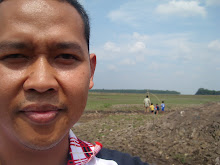Chapter V: The Power of Context (Part Two) – The Magic Number One Hundred and Fifty
Rebecca Wells’ Divine Secret of Yaya Sisterhood is really sticky. Ex-actress, Rebecca is a classic salesman, making her Yaya Sisterhood reading performance is like theatrical performance. In addition to the role of Rebecca and the stickiness of the book, there’s another critical factor to make Yaya Sisterhood a best seller. It’s the power of context, i.e. how groups change individual behavior through group power, peer pressure, etc. A typical Yaya Sisterhood reading group initially consisted of mothers and daughters (two generations), but later consisted of grandmas, mothers, and daughters (three generations).
Another example of group success is John Wesley’s Methodist movement whose members surged dramatically from late 18th century to early 19th century. Not only preaching, Wesley stayed a little longer to have further talk to interested audiences. Afterward, those interested persons were grouped in practicing groups. The members of a group should attend weekly meeting when value and practice were enforced. Those not complied with the value were expelled.
Group power has already been an interesting topic for research. According to findings, individuals behave differently if they are in a group. Group gives peer pressure. Group gives social burden, as well as intellectual burden. The question is how large a group is supposed to be for its effectiveness. This size problem relates to human limitation, scientifically called channel capacity.
In his research, George Miller concluded that in average human short-term memory is limited to the magic number of seven. You can attest this by trying to differentiate the sweetness of a series of cups of tea. The limit is almost always seven, i.e. you can differentiate only up to seven cups of tea. If you like to sing, probably you can attest this magic number by trying to differentiate a series of different tones rather than cups of tea. This also was the reason why local telephone numbers usually consist of seven digits. This limitation is true not only for cognition but also for feeling. Please try to answer how many your close friends are. More than twelve? Wow, it is not usual.
Another researcher, Robin Dunbar suggested that human social channel capacity is the magic number of one hundred and fifty, in average. He derived this number from homosapien neocortex size and compared this computed number to the average size of villages and tribes in Australia, Papua New Guinea, etc. Hutterite settlements’ splitting point is also 150. When a colony exceeds 150, the colony should split into two.
This social channel capacity or limitation is also parallel with the size of battle functional units in army, which never exceeds two hundred. With this group size, the group can be governed with one-to-one command relationship and personal loyalty. Larger than 150, people will be stranger to each other. Consequently, to maintain cohesion in a group larger than 150, hierarchy, laws, rules, and enforced policies should be introduced.
An example of principle 150 implementation can be found in Gore & Associates. This company produces water resistance goretech, electronic, medical, pharmaceutical products. At Gore, there are no titles, only ASSOCIATE’s. No boss, no plan, no organization chart, no prestige’s office. Gore is a big company attempting to act like a small, entrepreneurial one. It is always high ranked in growth and profit. In each plant, there are only 150 associates. If the parking lot (150 in size) is not enough anymore, it is a sign to build a new plant. Peer pressure is more powerful than a boss: everyone knows everyone. Unity in a complex institution results in a GLOBAL MEMORY SYSTEM.
Daniel Wegner (University of Virginia) introduced that people remember things with help of relationships and groups. This kind of memory is called transactive memory. Individuals do not need to know everything, because there’s somebody who is expert in one area. The total expertise and memory within relationships and groups is much more larger than that of any individual (see also a more recent book The Wisdom of Crowds by James Surowiecki – Y Pan).
Basically, people store information outside their brain. Even people store information with other people. Daniel Wegner experimented with couples who know each other and couples who do not know each other to remember things. As you might have expected, the couples who know each other remember things better. With expertise specialization in group and with automatic assignment regarding storing new information, efficiency is more evidence. However, this global memory system only can work if people in a group know and trust other people to know what they know.
Finally, using the channel capacity concept, in order to tip a big movement, one needs to start with many smaller contagious movements first. However paradoxical, the statement intuitively is so true!
If you think this article really deserves it, please make your donation by using PayPal.
Minggu, 03 Februari 2008
The Tipping Point 5
Label:
manajemen,
nilai-nilai,
review buku
Langganan:
Posting Komentar (Atom)
addthis
Kategori
- bahasa-matematika (23)
- demokrasi-politik (51)
- ekonomi-bisnis (71)
- lebih personal (42)
- manajemen (111)
- nilai-nilai (137)
- review buku (68)
- sistem informasi (37)






Tidak ada komentar:
Posting Komentar